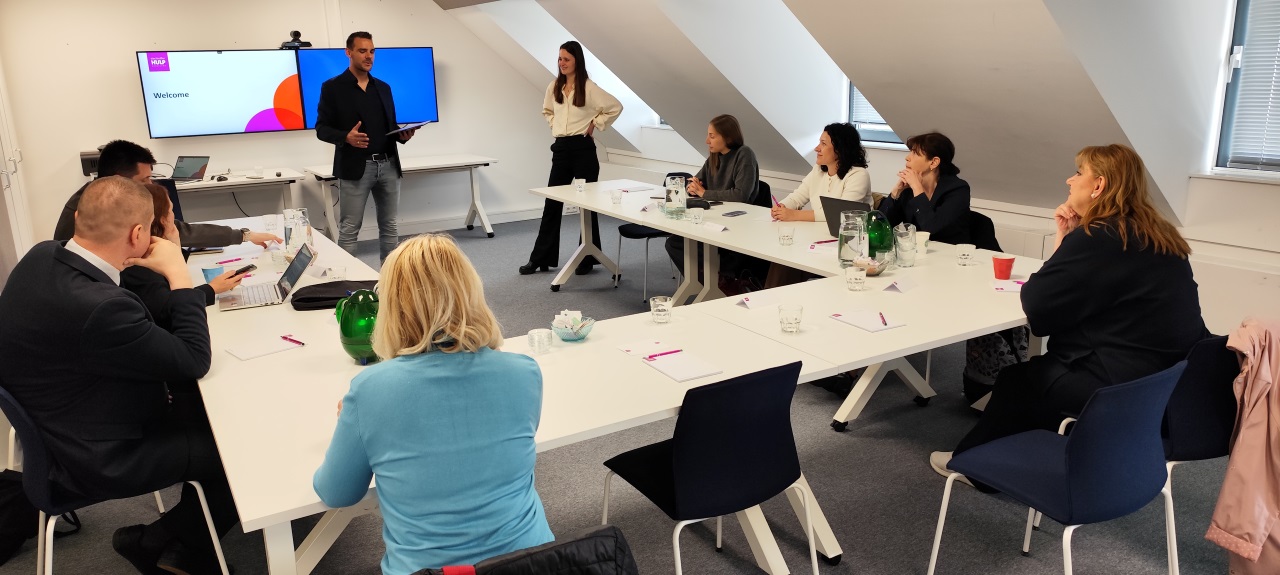A delegation from the recently established Commission for Monetary Compensation for Victims of Violent Crimes (the Commission), was part of a 3-days study visit to the Hague - Netherlands supported by the EU and Council of Europe. The visit aimed to study the Dutch best practices and discuss multiple challenges that the Commission is facing in terms of the criteria for awarding compensation, the standard of proof and documentation for the injuries suffered.
The Commissioners from North Macedonia met with key Dutch interlocutors who are helping victims of violent and sexual crimes to seek justice or awarding them a compensation for unlawful acts infringing upon their human rights. They exchanged and learned more about the mechanisms and systems for awarding compensation to victims of violent crimes in a consistent and victim-oriented manner. Dutch judicial authorities explained the criteria and thresholds used in criminal and civil proceedings to assess and award pecuniary and non-pecuniary damages to victims in Netherlands. Representatives of the Dutch State Compensation Fund, a body with a similar mandate to the Commission’s, shared their simple and accessible procedures for claiming compensation, even in absence of a court case. They explained how the amounts for the compensation of victims were set in accordance with the seriousness of the injuries suffered and were made public. In the Netherlands, there are multiple avenues available to victims of violent crimes, seeking compensation for the crime they suffered. To increase the victim’s prospects to receive compensation, a well-established scheme for an advanced payment is in place, if the perpetrator fails to pay the damages awarded by the court to the victim.
Compensation not only helps victims start a new life but also shows that society recognises the injustice they have suffered. It supports their healing process and helps them move past the negative effects of these traumatic experiences for a better future.
The study visit was organised by the “Strengthening anti - trafficking action in North Macedonia”, part of the European Union/Council of Europe co-operation initiative “Horizontal Facility for the Western Balkans and Türkiye”.


